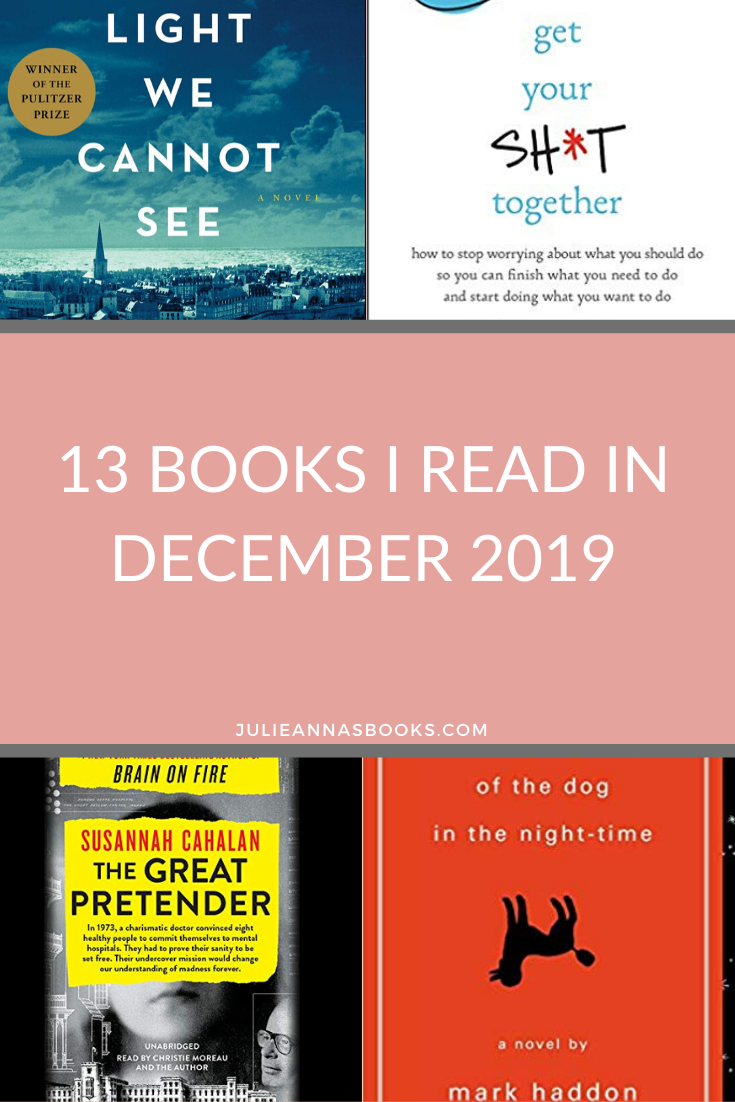This month, I somehow managed to read 13 books! Which means that I was successfully able to hit my Goodreads goal and read 100 books!
Note to self: Lower my Goodreads reading challenge goal for next year.
In any case, I had a pretty interesting reading month. I read a lot of books, and my ratings for those books were all over a place. And since we’re looking at a lot of books this month, let’s just get started.
Range: Why Generalists Triumph in a Specialized World by David Epstein
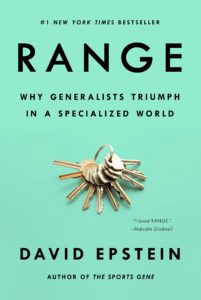
Range is a non-fiction book that challenges the idea of seeking to be specialized quickly, and why being a generalist is more beneficial (whether you eventually become a specialist or not). This book draws from several stories and studies that show the benefit of having a broader understanding in a field of knowledge or skillset.
As someone that considers herself a little more of a generalist, I found this book to be a helpful read as I have always been unsure of whether or not I should be more specialized in my career. There were also a few insightful studies that applied to me (the one that comes to mind was the one discussing how musicians that “sampled” their instruments before choosing one were better performers). I was expecting some information about becoming more of a generalist (aka information applicable for the reader), but regardless, I thought this was a good book to start the month with.
Siege and Storm by Leigh Bardugo
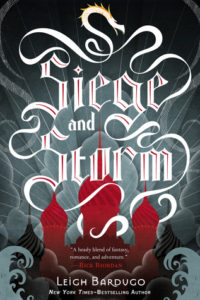

After the events of the first book, Alina and Mal are on the run with Alina’s identity as the Sun Summoner a secret. But they are unable to run for long, with her secret hard to keep and The Darkling on the return. When she returns to Ravka, she tries to raise forces against the resistance. But as she spends more time in the country and her power grows, she must begin to make choices about what matters the most.
I felt a little conflicted by this book. While I don’t necessarily feel like it suffered from second-book syndrome, much of the plot was centric around a love triangle that I didn’t really care for. I am still looking to finish the trilogy though as I’d like to read Six of Crows, and it looks like my copy of the next book just came in from the library, so I’ll be finishing that book this January.
Fractures (Ledgers of a Dark Mage #1) by N.K. Leem
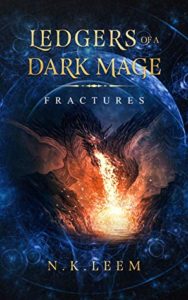

Fractures is the first book in a series that follows Thaleon and Dawyn, two boys who find themselves bonded as brothers.
I was sent an e-arc of this book from the author in exchange for an honest review. It’s a solid start to a new fantasy series that I’d like to continue. I was very driven to keep reading primarily from the character’s experiences and the different unexpected twists that take place throughout the novel.
You can find my full review here.
Dr. Jekyll and Mr. Hyde by Robert Louis Stevenson
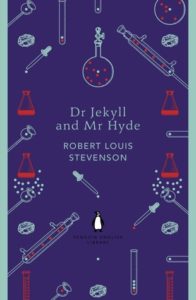
This classic novella follows lawyer John Gabriel Utterson, a close friend of Dr. Jekyll. After hearing of the criminal acts of Mr. Hyde, a friend of Dr. Jekyll, Utterson begins to investigate.
Something that I’ve been enjoying lately is going back to classics I haven’t read yet, while at least knowing they have a strong presence in pop culture still. This book definitely falls under that category, even though I didn’t know anything about the story prior (other than their names). That being said, I did not anticipate the ending! It ended up being one of those books that made me sit and think on it for a long time after.
Dare to Lead by Brenè Brown
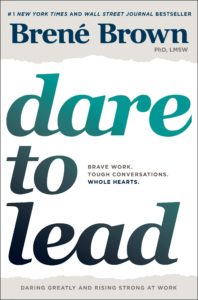
In this book, the author shares how to acquire the traits necesary to become a leader. This includes not only what we know of from leaders such as having courage or or good communication, but also the lesser-discussed attributes, like shame and discomfort.
In retrospect, I probably should have read her prior books before this one, as she does make a lot of references to them. Regardless, the topics she discussed were ones that I’m not used to hearing as often in other books on this topic, and while I have been learning these things through experience at work, her book gave me a lot of further insight on those experiences.
The Curious Incident of the Dog in the Nighttime
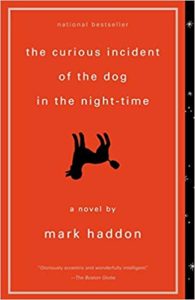

This book follows a teenage boy on the autism spectrum who finds his neighbor’s dog killed in their yard. From this point, he is determined to find out who the killer was – and in the process, uncovers a lot more than he expected to find.
Overall, I thought that this was a good story. I can’t speak for the autism representation throughout, but I really felt for him and the way the world treats him so poorly. The only thing that was off to me was how quickly the ending wrapped up, but this book was definitely more of a character-oriented story, so I undertstand why it did.
The Great Pretender by Susannah Cahalan
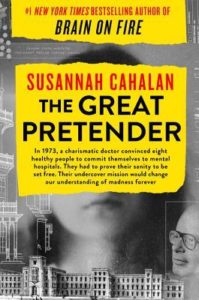
The Great Pretender discusses Dr. Rosenhan’s proposal and implementation of entering psychiatric facilities as a sane individual, and attempting to prove their sanity in order to leave. The intent was to find out what truly happens behind the doors of these facilities, and whether the diagnosis and treatment methods are efficient and humane.
While this book was very informative and made me consider a lot of our history and advancement of mental health treatment, this wasn’t an instant favorite. I think this book could have been organized in a more linear way as it often returned to subjects previously covered. Overall it follows a timeline to convey the impact of this study, but in fine detail it was not always consistent. Regardless, there was a lot to learn from this book and I would still recommend it to those that are looking for some introductory information about psychatric facilities in the last century.
You can read my full review here.
Get Your Sh*t Together by Sarah Knight
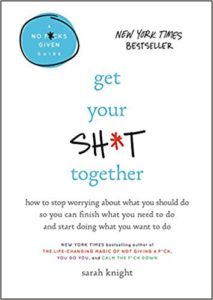
This book aims to help you get your life together with a simple method that you can implement in your life, no matter what that consists of. The author discusses how she’s applied this method to her life and how she’s been able to craft her life as it is now with these steps.
This book was disappointing to me, not just for the content itself, but also its redundancy in that content. The method she’s refering to here is to set a goal, break it up into smaller, more manageable pieces, and set time aside to complete it. From there, the book is very repetitive. Additionally, some of the author’s commentary was off-putting, making me less likely to pick up her other books. In place of this book I’ve read others in this month alone that include self-discovery and help you enact a more detailed plan to hit your goals (see Everything is Figureoutable and Designing Your Life below).
You can read my full review on my Goodreads here.
lWaking Gods by Sylvain Neuvel
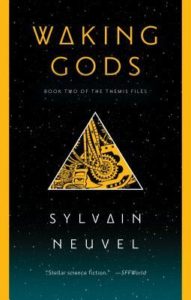

Waking Gods is the second book in the Themis Files trilogy. As a child, Rose made the landmark discovery of finding a human-like hand in a massive crater on Earth. Since then, she’s dedicated her life and career on making that discovery. But one day, a second robot is found – and it is violent. As the world descends into chaos, the Earth Defense Corps must make sense of the disasters happening across the planet – and put a stop to it before it is too late.
This was a solid second book in the trilogy, and I can say that I liked it even more than the first one! The mixed media/interview format makes it difficult to describe character personalities and emotions, but the author did a great job of conveying these. The political aspect of this book caught my interest as well, as there’s intense decision-making based on so many unknowns. I’m looking forward to reading the final book in this trilogy.
You can find my full review on my Goodreads here.
Everything is Figureoutable by Marie Forleo
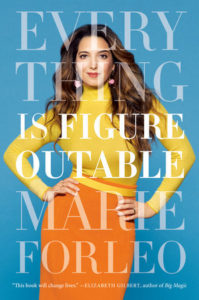

In this book, Marie breaks down the title phrase, “Everything is Figureoutable”, into steps and processes about how to figure out your life and promote personal growth. Each chapter includes some anecdotes, letters from those who have applied this philosophy, and self-reflection prompts to help you get started.
I was hesitant going into this book at first because it was being compared to self-help books that I didn’t like, but it ended up being a well-written guide to transforming your life. What set this book apart for me were the number of self-reflection prompts at the end of each chapter that help connect each part to your personal experiences. There were some anecdotes that didn’t necessarily match to what she was trying to convey at all times (and others that I felt were not at all relatable to the audience for this book). Despite this, there were a lot of insightful takeaways from this book, coming from someone who was not previously aware of MarieTV.
You can find my full review on my Goodreads here.
Who Moved My Cheese? by Spencer Johnson
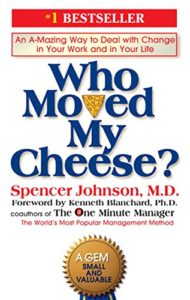

This book, whose message is widely used in corporate environments, follows two mice and two “Littlepeople” in their search to find cheese in a maze. When they find that the cheese is gone one day, their responses and methods to find new cheese is an analogy to how employees (or people in general) react and respond to change.
In a word, this book was…interesting. The character interpretations are more beneficial to the book itself, as it’s a way of self-reflection to see what kind of person you are in a situation and whether your responses are the best way to handle changes in your life. In some ways, however, the way this story was written was so simplistic at times that it almost felt condescending. Adjusting to change is an important skill in life and this book highlights that, but I would feel a little strange giving this book to someone.
You can find my full review on my Goodreads here.
Designing Your Life: How to Live a Well-Lived, Joyful Life Bill Burnett & David J. Evans
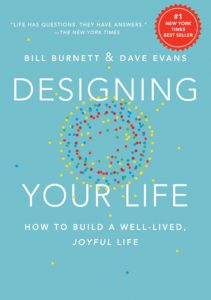
Designing Your Life is a book about applying design principles to your short and long-term life plans. It was written based on a course that is taught to students at Stanford. Using hypothetical “fuel tanks” to determine what is full in your life (and what is empty), the authors help design a life plan that you can fulfill, whether you are looking to make big changes or are unsure what will bring you happiness.
Overall, I really liked the way the authors incorporated these design principles into their courses. There’s also several self-discovery exercises (similar to Everything is Figureoutable) that will help you apply these principles to your life. While this book is centered around all things in life, the central focus is on your career (which the authors do make a disclaimer for). That being said, I think this book is best-suited for those first entering the workforce (there’s a whole chapter on modern job-hunting), even though there are some anecdotes on people that made career changes.
All the Light We Cannot See by Anthony Doerr
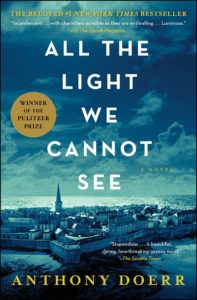

This book follows the lives of a boy and girl set during World War II. There is Marie-Laure, who is on the run with her father after the Germans invade Paris. Then there is Werner, an orphan boy whose special talent in fixing radios makes him a special candidate to aid in the war. This historical fiction novel focuses on their separate lives, and how they intertwine.
I’m happy to end my year on a positive note with this book. The writing was so lyrical and beautiful, and at the same time, it flows despite its short chapters. And despite the fact that the main plot moves slowly, there are so many layers going to this that it ended up becoming worth the wait. This is definitely a reread candidate for me.
You can find my full review on my Goodreads here.
And that’s my reading wrap-up for December 2019! Have you read any of these books? Be sure to let me know your thoughts.
Julie Anna
